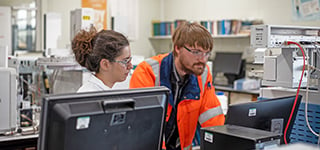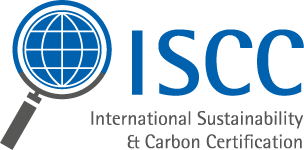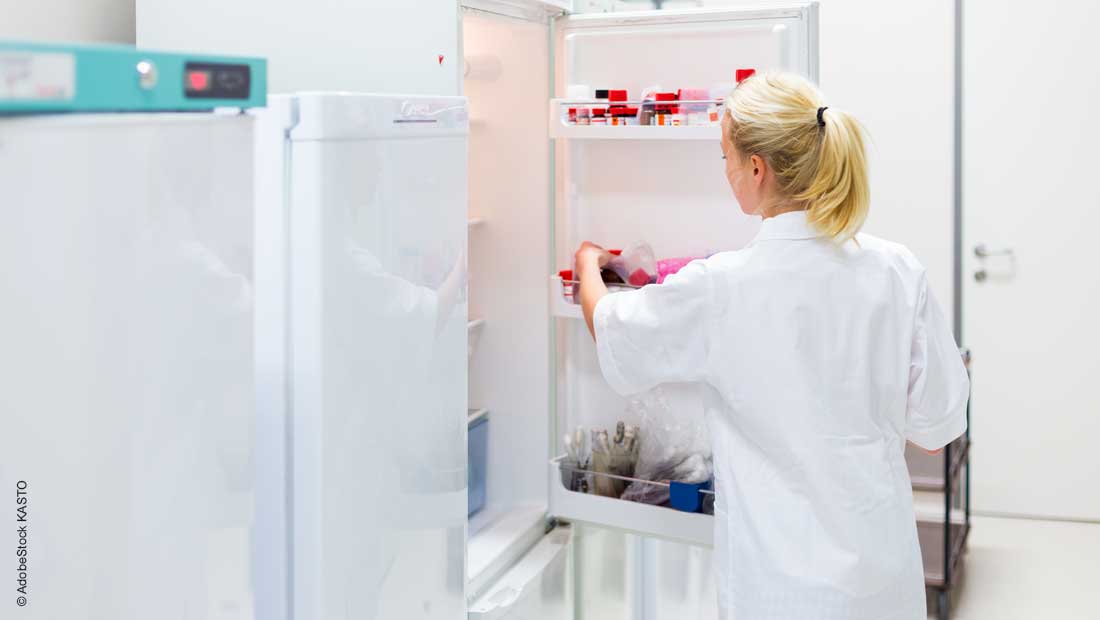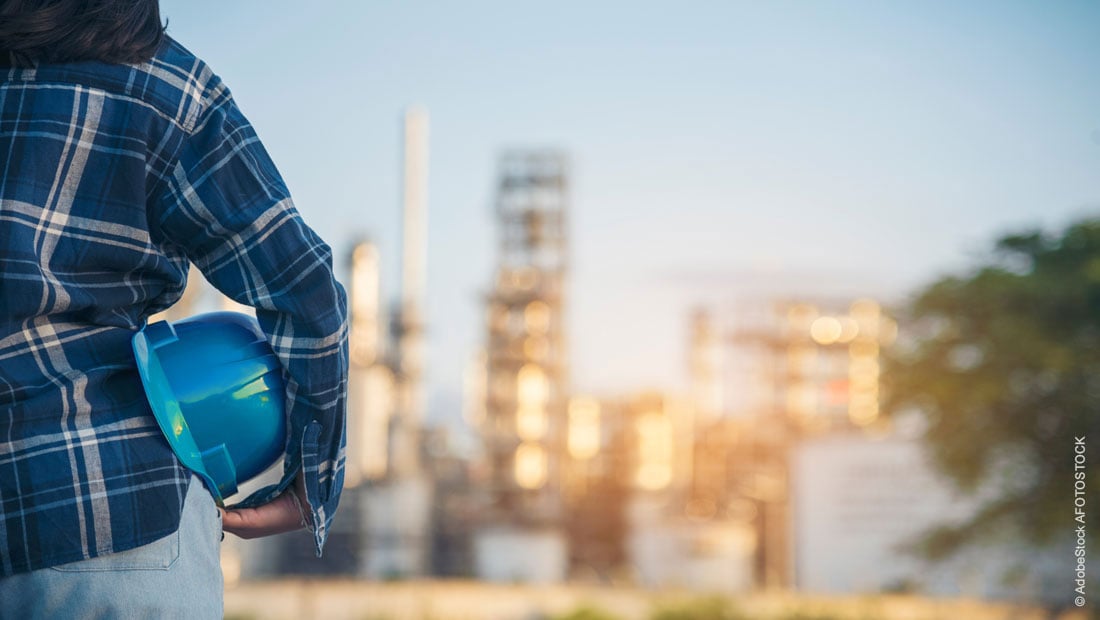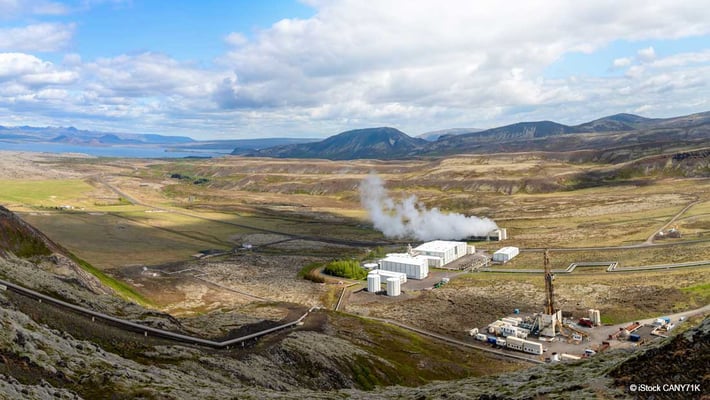
In the course of the energy turnaround, geothermal energy generation is becoming an increasingly important topic alongside electricity generation from solar, wind and hydro power. Generating sustainable electricity is more topical and urgent than ever. Organic Rankine Cycle (ORC) plants play an important role, because they open up ways of generating electricity and heat that were not possible in the past. Find out here what advantages and future opportunities the process offers.
Organic Rankine Cycle (ORC) – the future use of geothermal energy
Geothermal energy has been used for a long time - thermal water has always been an important source for supplying heat in buildings. However, for the generation of electricity through steam power processes, very high temperatures from the earth's interior are required. However, this is not possible from many geothermal sources.
The Organic Rankine Cycle (ORC) is a thermodynamic process that generates electricity and heat even at lower temperatures:
- Instead of water, another organic process medium with a low evaporation temperature is used for the steam power process.
- These organic evaporation media have a higher steam pressure compared to water, which is usually used in power plants.
- The organic steam drives the electricity generator via a turbine.
- This makes it possible to use temperatures as of 80 °C to generate electricity.
- A popular process medium is Pentane.
- Pentane is a hydrocarbon compound with a very low boiling point.
The Organic Rankine Cycle (ORC) process is mainly used when the available temperature gradient between heat source and heat sink is too low to operate a turbine driven by steam. It is ideally suited for power generation, producing electrical and thermal energy from various sources such as renewable energy (biomass, geothermal, solar), conventional combustibles and waste heat from industrial processes, waste incineration plants or gas turbines.
This blog article could also be of interest to you:
Example of a two-stage ORC power plant with heat extraction
An ORC plant is a turbine with two circuits (binary machine). Via a heat exchanger, this working fluid absorbs thermal energy, e.g. from the thermal water. The thermal water itself does not enter the turbine. This process makes low-temperature heat usable for electricity generation.
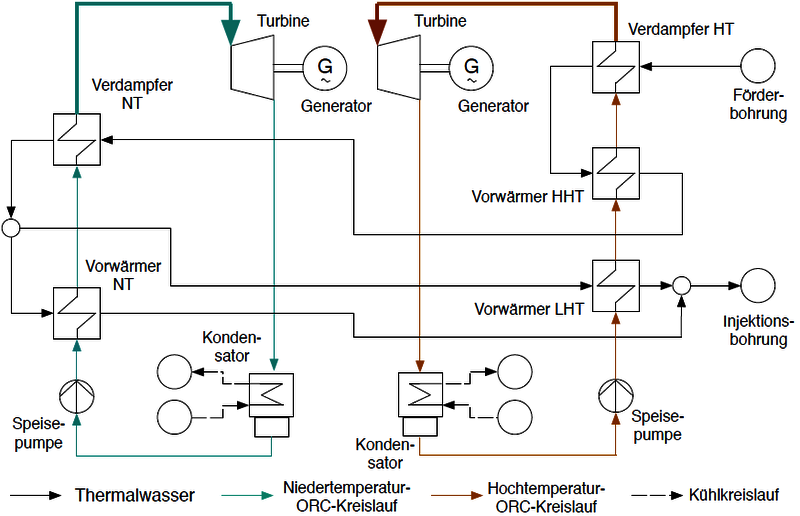
Source: Geothermal Energy Association: Organic Rankine Cycle (ORC)
|
The Organic Rankine Cycle (ORC) is named after the Scottish physicist and engineer William John Macquorn Rankine (5 July 1820 - 24 December 1872). He is considered one of the founders of thermodynamics and introduced the concept of "energy" for the physical quantity previously referred to as "living force". |
Advantages of ORC process
The advantages of the Organic Rankine Cycle (ORC) process are obvious and powerful arguments when it comes to sustainable energy production. This also applies in the context of achieving the climate targets of the European Green Deal:
- Sustainable, efficient and environmentally sound energy production.
- Geothermal plants are not problematic in terms of landscape architecture, as they require little space and are not enormous in height.
- Power generation is independent of weather and seasonal fluctuations, unlike solar, wind and hydro power.
- Possibility of using any waste heat, i.e. not only in connection with geothermal energy.
- The electricity production process can be adapted to the temperature of the heat source: the decisive factors here are the level of evaporation pressure and the choice of solvent.
Pentane ensures sustainable electricity generation
As an important solvent, Pentane is characterised by
- low boiling point,
- low density and
- high vapour pressure.
Would you like to find out more about this Pentane? Then visit our website on Pentanes or contact us directly:
Conclusion
Using the Organic Rankine Cycle (ORC) process, geothermal plants and other waste heat sources can use even low temperature heat to generate electricity and heat. The important thing is to choose the right evaporation medium, such as Pentane. The ORC process enables more efficient use of heat for power generation and can thus make an important contribution to the climate goals of the European Green Deal.





